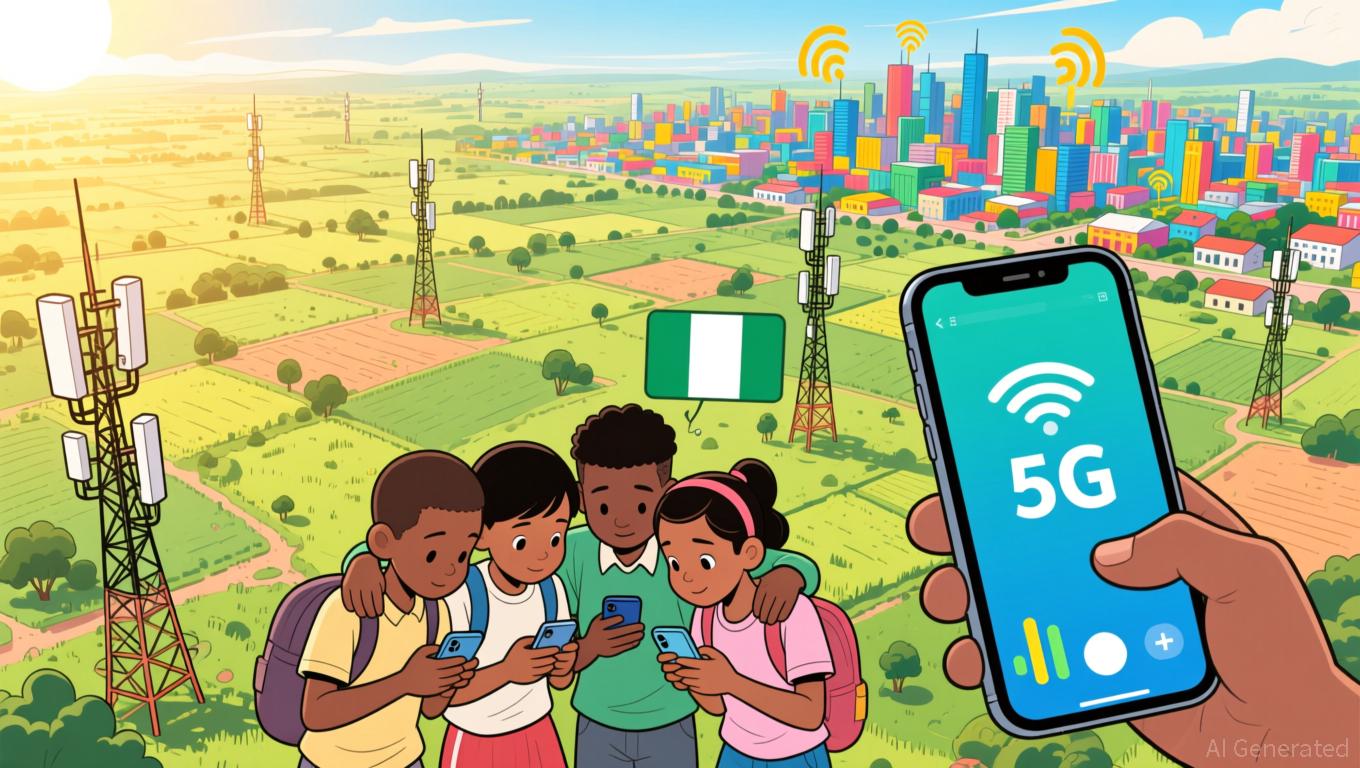Security Concerns Hinder Nigeria's 5G Aspirations
Bitget-RWA2025/11/25 19:40
By: Bitget-RWA
- Nigeria's 5G coverage remains at 3% three years post-launch, lagging behind regional peers and global trends like MENA's projected 48% adoption by 2030. - Security crises, including 300+ schoolkid kidnappings, have diverted government resources from infrastructure, delaying 5G rollout amid economic instability. - Despite 15.7% annual fintech growth, Nigeria's embedded finance sector faces innovation limits without widespread 5G to enable real-time data processing. - Contrasting South Africa's 20% online
Three years after the introduction of 5G in Nigeria, coverage remains limited to just 3% of the country—significantly trailing behind other nations in the region and hampering Nigeria’s digital transformation goals. While demand for advanced connectivity is rising across Africa—
with forecasts predicting the embedded finance market will grow by $18 billion by 2030
—the rollout in Nigeria has faced persistent setbacks, fueling worries over regulatory hurdles and insufficient infrastructure. 
The slow pace stands in stark contrast to the Middle East and North Africa (MENA), where
the proportion of 5G connections is projected to jump from 7%
in 2024 to 48% by 2030. This gap underscores Nigeria’s difficulty in keeping up with regional advancements, especially as the nation contends with both economic instability and security issues. The recent abduction of more than 300 students
in western Nigeria has further shifted government attention and funding away from infrastructure, compounding the delays in 5G expansion. Authorities have yet to clarify the reasons behind the sluggish deployment, but
analysts cite a mix of contributing issues
. At the same time, the nation’s embedded finance industry, led by fintech companies
such as Lami Technologies and Payhippo, has remained robust, growing at an annual rate of 15.7% since 2021. Still, the lack of widespread 5G is seen as a barrier to further innovation, particularly in digital banking and payment systems that depend on real-time data. Security concerns have only made matters worse.
The wave of recent school kidnappings
, along with assaults on religious sites, has forced officials to focus on immediate safety over long-term digital infrastructure. President Bola Tinubu’s move to withdraw from international events
, including the G20 summit, to address these crises highlights the political pressure. However, this shift in priorities has further delayed 5G projects, which require ongoing investment and cooperation among stakeholders. Meanwhile, South Africa—a digital frontrunner in the region—is considering
implementing a 20% tax on online gambling
to support regulatory oversight and address social risks. Nigeria, lacking a similar fiscal approach, faces the danger of being left out of Africa’s digital economy due to its 5G stagnation. According to the embedded finance report, Nigeria’s fintech sector
stands to gain from faster transactions and enhanced data analysis enabled by 5G, but these benefits remain inaccessible without broader network coverage. This scenario highlights a wider divide in Africa’s digital progress: while
areas like MENA are rapidly advancing 5G
, countries such as Nigeria are held back by deep-rooted challenges. Without decisive action, Nigeria risks falling even further behind as neighboring nations embrace the next wave of digital connectivity. Disclaimer: The content of this article solely reflects the author's opinion and does not represent the platform in any capacity. This article is not intended to serve as a reference for making investment decisions.
Lock now!
You may also like
Crypto prices
MoreBecome a trader now?A welcome pack worth 6200 USDT for new users!
Sign up now